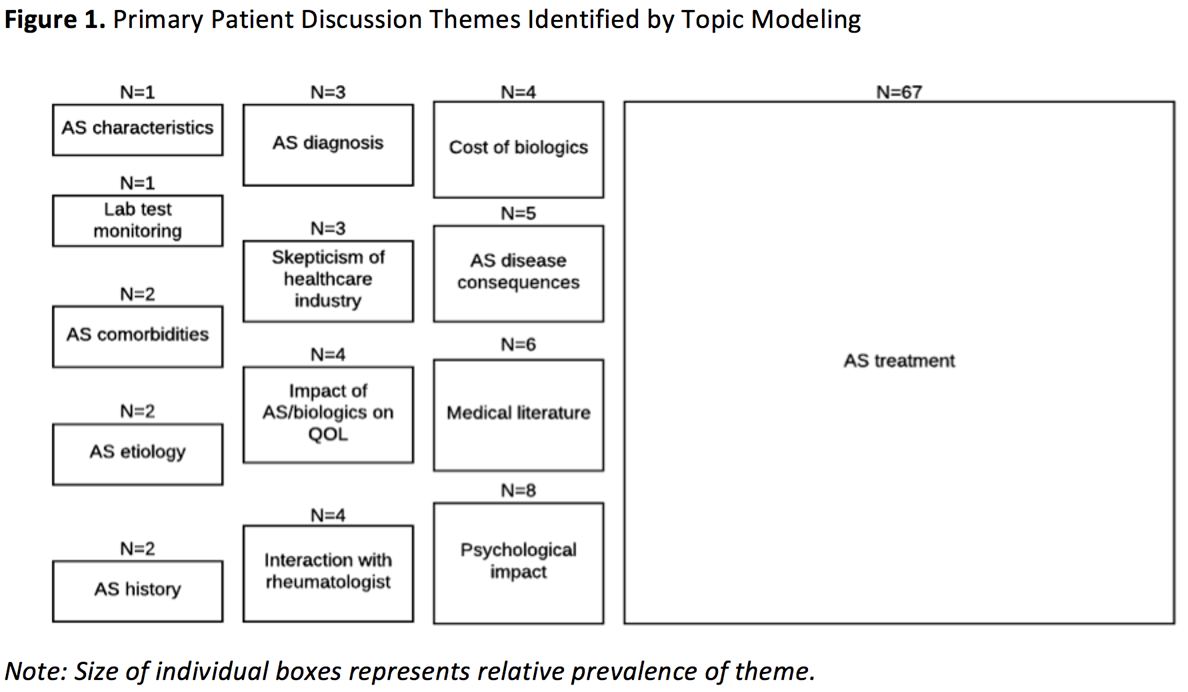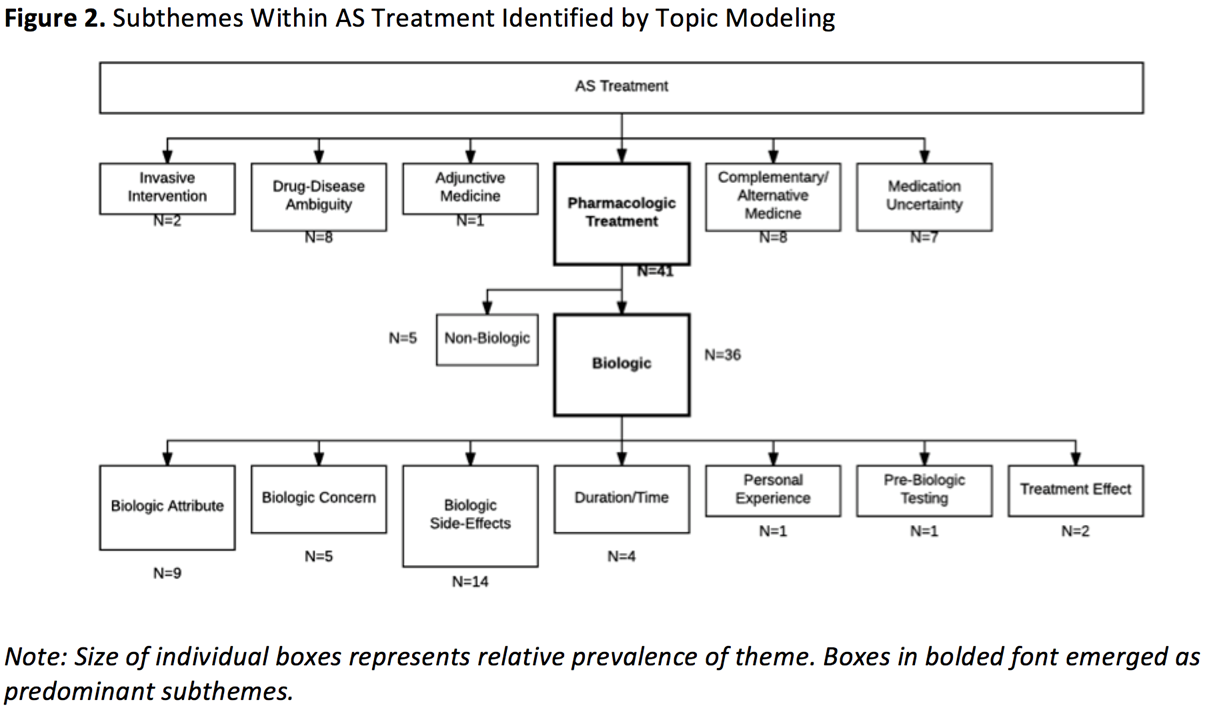Session Information
Session Type: ACR Poster Session C
Session Time: 9:00AM-11:00AM
Background/Purpose: While there are multiple biologic options for ankylosing spondylitis (AS), few attempts have been made to examine patients’ knowledge and understanding of these therapies outside of traditional surveys. Social media is a new data source which presents a rich opportunity to learn from patients outside of controlled environments such as in clinical trials and clinic visits. In this study, we used social media data to examine AS patients’ knowledge, attitudes, and beliefs regarding biologic therapies.
Methods: We collected posts from 601 social media sites made between 1/1/06-4/26/17. Each post mentioned both an AS keyword and a biologic. To explore themes within the collection in an unsupervised manner, a latent Dirichlet allocation (LDA) topic model was fit to the dataset. Under LDA, each discovered topic is represented as a discrete distribution over the words in the collection, which may be thought of as a word cloud (i.e. words with more probability are larger in the cloud). The topics were manually reviewed to identify themes, which were then confirmed by reviewing relevant posts within each candidate topic.
Results: We examined 27,416 social media posts that focused on AS and biologics and found 112 themes. The majority of themes (60%, 67/112) focused on discussions surrounding AS treatment. Other themes including psychological impact of AS, reporting of medical literature, and AS disease consequences accounted for the remaining 40% (45/112) of topics (Figure 1). Within AS treatment discussions (Figure 2), most topics (61%) involved discussions about pharmacologic treatment (biologic and non-biologic options). The majority of biologic subthemes (78%) centered on side-effects related to its use (e.g. fatigue, allergic reactions), biologic attributes (e.g. dosing, frequency), and concerns with its use (e.g. increased cancer risk, reproductive concerns).
Conclusion: Social media reveals a dynamic range of themes governing AS patients’ experience and choice with biologics. The complexity of selecting among biologics and navigating their risk-benefit profiles suggests merit in creating online tailored decision-tools to support patients’ decision-making with AS biologic therapies.
To cite this abstract in AMA style:
Minhas D, Noah B, Dzubur E, Almario C, Ishimori M, Arnold C, Howard A, Khalil C, Jusufagic A, Chen M, Park J, Weisman M, Spiegel B. Patient Knowledge, Attitudes, and Beliefs Regarding Biologic Therapies in Ankylosing Spondylitis (AS): Insights from a Large-Scale Analysis of Social Media Platforms [abstract]. Arthritis Rheumatol. 2017; 69 (suppl 10). https://acrabstracts.org/abstract/patient-knowledge-attitudes-and-beliefs-regarding-biologic-therapies-in-ankylosing-spondylitis-as-insights-from-a-large-scale-analysis-of-social-media-platforms/. Accessed .« Back to 2017 ACR/ARHP Annual Meeting
ACR Meeting Abstracts - https://acrabstracts.org/abstract/patient-knowledge-attitudes-and-beliefs-regarding-biologic-therapies-in-ankylosing-spondylitis-as-insights-from-a-large-scale-analysis-of-social-media-platforms/


